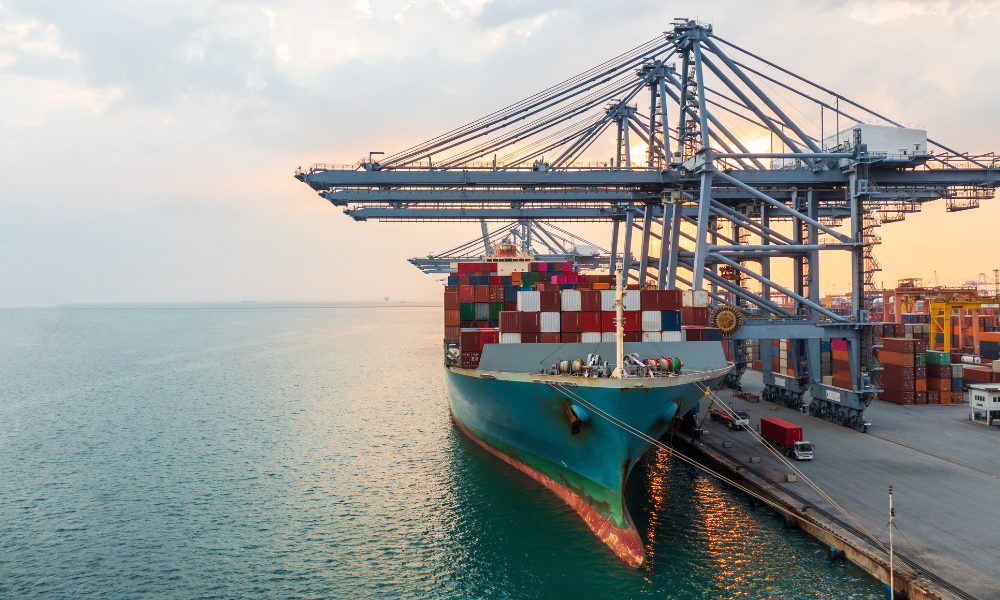Retailers are facing disruptions and rising costs as 145% tariffs on Chinese imports take effect

Major US retailers, including Amazon, Home Depot, Ikea, Ralph Lauren, and Tractor Supply, are facing significant logistical and financial challenges due to President Donald Trump’s 145% tariffs on Chinese imports.
These companies are working to manage the increased costs and disruptions stemming from the tariffs, which have impacted a wide variety of consumer goods, as reported by CNBC.
The tariffs, which came into effect in April, have had immediate consequences on products arriving at US ports, ranging from household goods to electronics and apparel.
As of Monday morning, the US and China had announced a 90-day truce in their trade war to make space for talks.
Shipping delays and price increases loom for Amazon
For instance, Amazon has received shipments of refrigerators, deep fryers, and furniture for its third-party sellers. These items are now subject to higher tariffs, which could lead to delays or higher prices for consumers.
In a statement, Amazon shared that it is working with its sellers to adjust to market conditions while ensuring that a broad selection of products remains available. CNBC has reported that Amazon's efforts to balance its supply chain amid tariff changes have been critical to maintaining its competitive edge.
Tractor Supply addresses ‘uncertainty’ in supply chain
Tractor Supply, which has seen shipments of garden tools, portable fans, and work boots arrive, has also raised concerns about the uncertainty created by the tariffs.
During its April earnings call, the company discussed the challenges it faces and the potential impact on future sales. A company spokesperson, speaking to CNBC, mentioned that Tractor Supply is actively working with its vendors and supply chain partners to manage the new costs while keeping an eye on the economic factors that may affect consumer behavior.
Home Depot and other retailers monitor ongoing disruptions
Home Depot, which is in a quiet period ahead of its quarterly earnings announcement, has had shipments of lamps and ceiling fans processed through customs.
In response to the evolving situation, the company referred to its ongoing efforts with vendors to navigate the disruptions, echoing similar sentiments shared by other businesses in its industry.
CNBC reported that, like many other retailers, Home Depot continues to monitor the market and adjust its strategies accordingly.
Other products arriving at US ports, including Ikea furniture, Speedo swim gear, Samsung electronics, and Ralph Lauren clothing, are all subject to the higher tariffs. While concerns about slowing consumer demand persist, many companies have continued to import essential goods to ensure inventory remains replenished.
Shipping traffic declines, smaller vessels deployed
The effects of the tariffs have also been felt in shipping logistics. CNBC highlighted that the number of sailings from China to the US has significantly decreased since the tariffs were introduced.
Sea-Intelligence data shows 90 canceled sailings across major trade routes in April and May, with logistics companies adjusting by using smaller vessels to manage the reduced volume. This shift is part of the broader adjustments businesses are making to address the impacts of the tariffs.
As the National Retail Federation’s Global Port Tracker report indicates, the reduction in shipping volumes and the use of smaller vessels is expected to lead to a year-over-year decline in US import cargo, the first such decline since 2023.
This trend is further exacerbated by uncertainties surrounding the trade war and its long-term implications. CNBC’s report suggests that businesses are increasingly cautious about placing new orders from China, raising concerns about potential product shortages and empty retail shelves.
These developments are a clear sign of the ongoing challenges businesses are facing as they try to manage the disruption caused by the trade dispute with China, which has continued to evolve and create uncertainty in the US retail sector.



